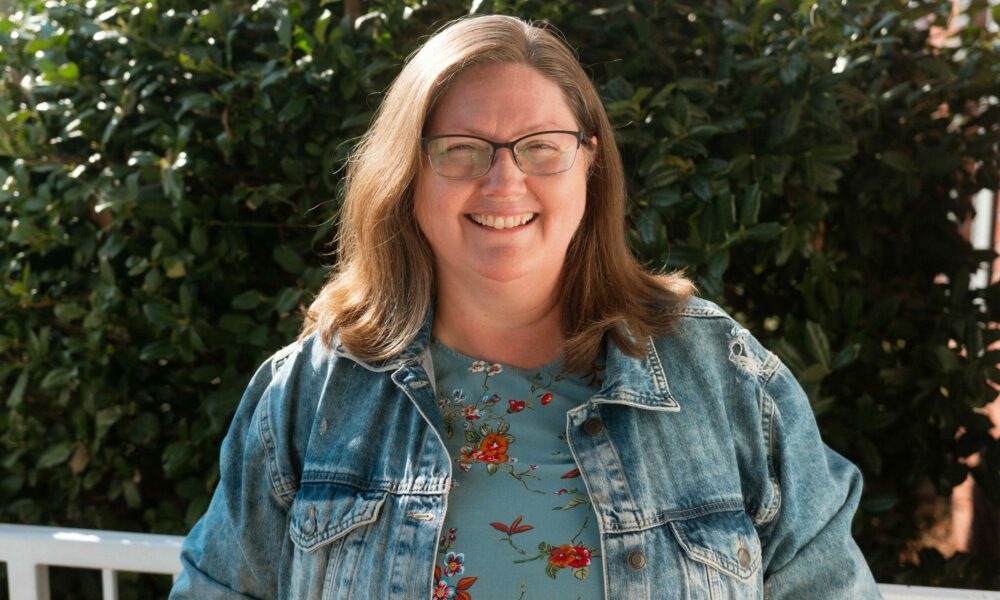

Today we’d like to introduce you to Rev. Christie Bates.
Rev. Bates, we appreciate you taking the time to share your story with us today. Where does your story begin?
At this age, 59, there’s not just one story to tell, but I’ll pick one thread to follow; because it leads me to tell you about a particular creative project that I’ve been weaving these last couple of years, and why it matters to me so much.
But first, the basics: I’m a Licensed Professional Counselor, as well as an Ordained Contemplative Minister. I have always been interested in finding ways to help bring calm and soothe frayed nerves, while also challenging myself and others to look at how we may be contributing to our suffering. I grew up in Alabama, then was educated and grew up professionally in Tennessee. As my children began to launch, I went back into the workforce full-time.
I found that the sense of permission to live a creative life was strong in Nashville, and not just in the arts. I was fortunate to work in places where – if I was willing to put in the work – I had lots of freedom to try out ideas that might help my clients. As a Family Counselor at Cumberland Heights Treatment Center, I was given some wonderful training in psychodrama that went straight into our work with families. As my interest in mindful recovery grew, I was supported in bringing Kevin Griffin, author of “One Breathe at a Time: Buddhism and the Twelve Steps” to do workshops with our patients. This and similar activities were instrumental in establishing the first “Buddhist Recovery” peer meetings in Nashville,
After seven years at Cumberland Heights, I went to work at The Ranch to develop a full track of Mindful Recovery programming. It included numerous mindfulness groups in the various programs, 1-1 trauma resolution therapy, and even a monthly half-day silent meditation retreat for clients who were ready for it. Numerous friends from the Buddhist recovery community joined us for those retreats, which supported our clients and showed them that – as one young man in treatment put it – “people are doing this stuff out there!” It was in 2013, at the beginning of my time there, that I first began training and practicing in Brainspotting, a targeted mindfulness experience for trauma resolution and creative expansion. Brainspotting has continued to be an important piece of my story.
In 2018, I had a grandchild on the way and shifted to full-time private practice to give me more flexibility. That year, I was proud to work on the founding committee of Mindful Nashville. Then, in 2019, I felt very definitely guided to move to Oxford MS to enjoy and be of service to my family.
I still consider Nashville my hometown, and I still serve clients there; but it’s been fun finding mindfulness-oriented folks here in Mississippi, whether at the Magnolia Grove Monastery in Batesville, a group called Deep South Dharma that I still facilitate online, our weekly in-person Oxford Mindfulness Group, or Flowering Lotus Meditation Retreats. I also have loved founding and growing a clinicians’ group called Brainspotting Mississippi.
I’m sure it wasn’t obstacle-free, but would you say the journey has been fairly smooth so far?
Like a lot of people who grow up to work in mental health settings, I came from a family where the grownups struggled with overwhelming compulsions, addictions, and attachments. I was fortunate to learn early about various 12-step family recovery programs, and so I came into contact with a path of practical spiritual growth as a young adult. I learned fairly early that I didn’t have control over the choices other people made. What came later for me was the recognition that I didn’t have ultimate control over the size and shape of my own body.
I began worrying about body size and shape around the age of 7 or 8, even though I was what we would now call a “straight-sized” child. But instead of talking openly about the issues that plagued our extended family, the adults talked in secret about those issues and talked out loud about body size and shape. I later learned that’s what we all tend to do as a society! At different times in my life, beginning with puberty and while I was still a thin person, I would launch into fairly severe diets and excess exercise whenever things in our household were feeling out of control. I was “successful” in terms of attaining whatever weight I was aiming for, but it wasn’t so extreme as to trigger adult intervention from inside or outside the family.
I thought I was managing, except that every five years or so, the weight I had lost would be back – with a bit more weight. It was crazy-making because I didn’t have the information we have now about the brain and body making sure this happens as a matter of survival. Even in recovery circles, there can be a lot of misunderstanding where disordered eating and/or body size/shape is concerned. I didn’t relate to people who spoke about binging or food “addiction,” but I certainly related to being preoccupied with my size. It was confusing until I got some training in the research around this subject that was not funded by diet product companies.
I had often taught in mindfulness groups that, when faced with suffering, either the situation can change, or if that won’t happen, the way we feel about it will change, if we are willing to see reality. Armed with better information, especially around the subject of health and the poor effects of chronic dieting on health, I could intellectually accept that either – (a) I was meant to be larger, or (b) even if I wasn’t originally meant to be larger, intentional weight loss had contributed to my being larger, and more dieting wasn’t going to change that.
Our feeling experiences, though, are about more than what we know intellectually. I turned to my contemplative practice for the emotional clarity I needed and learned that no less than the Buddha had spoken of diet culture. He called it “mada” – meaning “intoxication” with youth, health, and life – specifically, the intoxication of thinking we can craft and control an ideal of a body to make it last forever. He called it a “hallucination” to expect to find long-lasting beauty in the body, but he also taught numerous qualities that we can cultivate that grow only more beautiful as time passes – qualities like generosity, discernment, and unconditional goodwill. This path was a useful, uplifting, and sometimes even inspiring direction for pointing my efforts.
All that energy I used to spend trying to control the uncontrollable, I spend now in living a life and in helping other people do the same. Besides individual work with clients around this, I have offered training to other clinicians, especially focused on helping them understand the lasting benefits of a weight-inclusive social justice lens and the health risks of intentional weight loss. I also offer and constantly update new resources for The Beautiful Human App, where sharing, meditation and even Brainspotting practice help us cultivate the qualities of a truly beautiful being.
How can people work with you, collaborate with you, or support you?
Because my 1-1 spots tend to run full, the best way for most people to gain access to the support that I offer is by downloading The Beautiful Human app. It includes aspects of contemplative education, mindfulness training, and even some Brainspotting to help people use their incredible resilience and persistence to develop qualities that make life truly meaningful. It also offers ongoing support from me and other members of the community through our chat function.
A really interesting result of launching the app is that it has attracted not only people who struggled over size or shape. People who have struggled with their relationship to the body for other reasons have also found the book and/or audio course useful. It has been really wonderful to be able to support people in the universal struggle to recognize that the body is not self.
For collaboration, I really enjoy teaching workshops and retreats in contemplative spiritual settings, and I also offer continuing education training to other professional helpers. I absolutely love that kind of work!
Pricing:
- App: The Beautiful Human Sampler FREE
- App: The Beautiful Human, 2nd ed $14.99
- App: The Beautiful Human Audio Course, $39.99
- App: Professional Package, $74.99
- App: Premium Professional $124.99/yr
Contact Info:
- Website: passaticounseling.com
- Instagram: @thebeautifulhumanschool
- Facebook: https://www.facebook.com/thebeautifulhumanschool
- Linkedin: https://www.linkedin.com/in/christiebateslpc/
- Other: linktr.ee/thebeautifulhumanschool
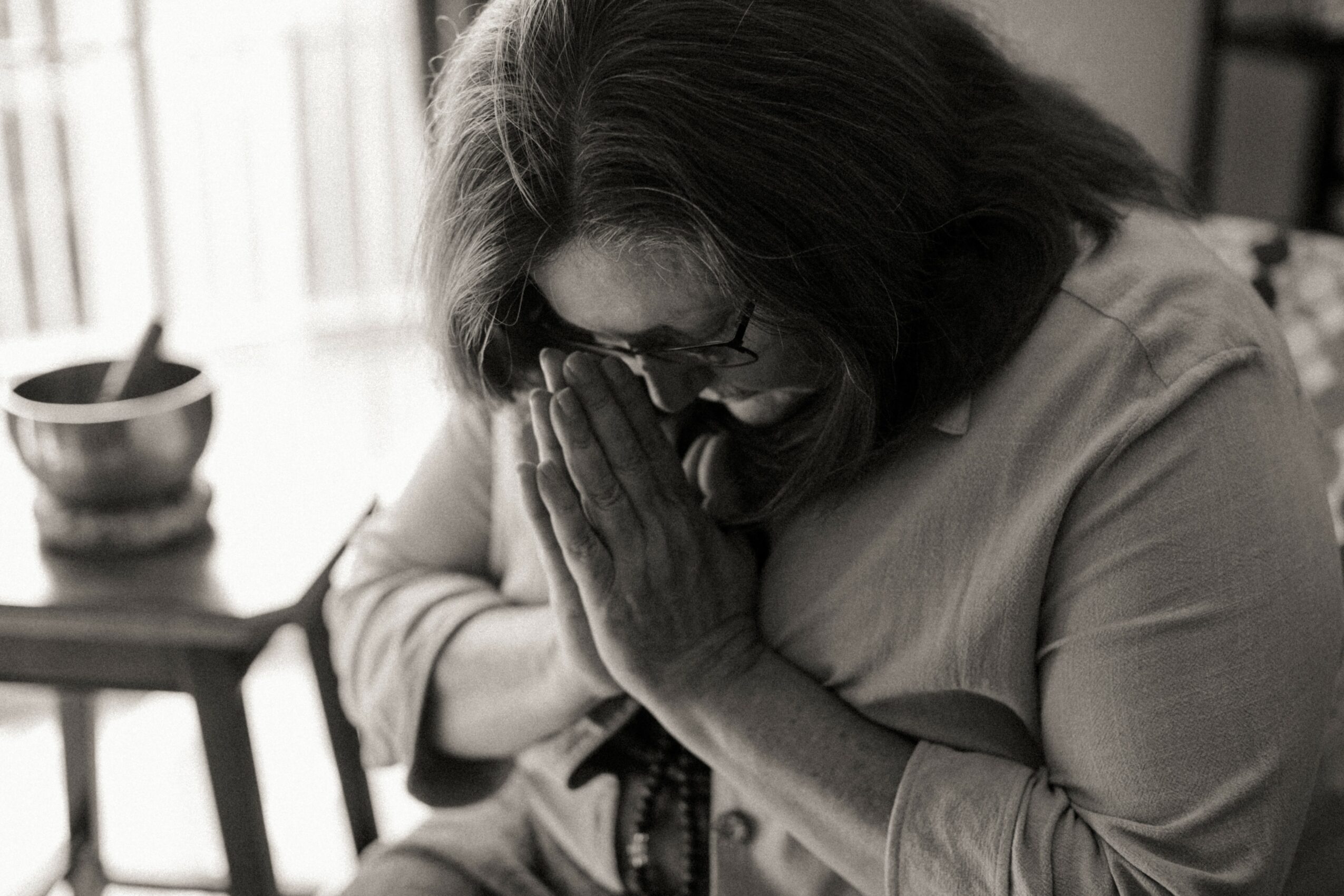
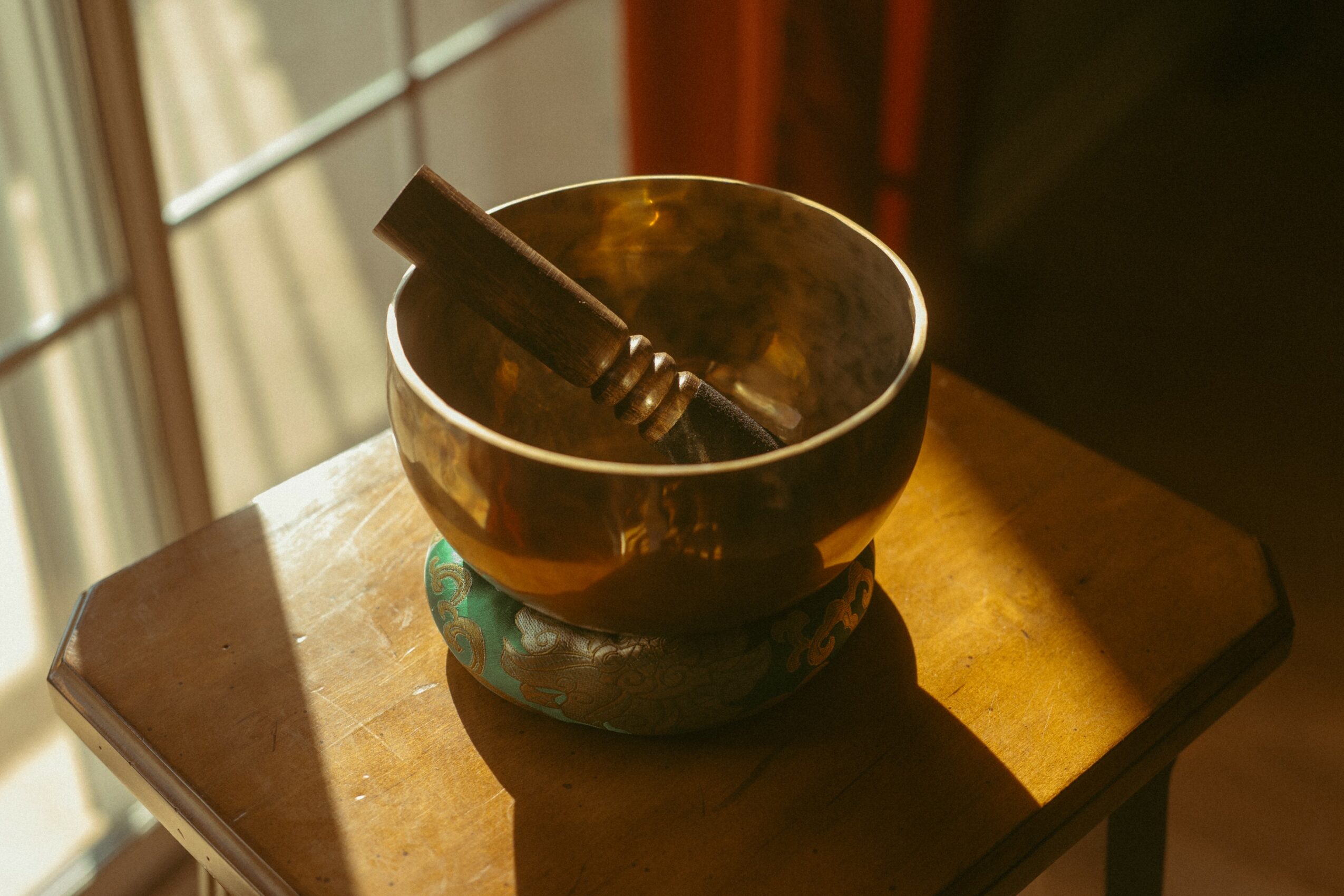
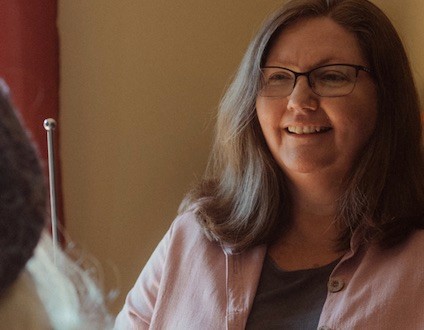
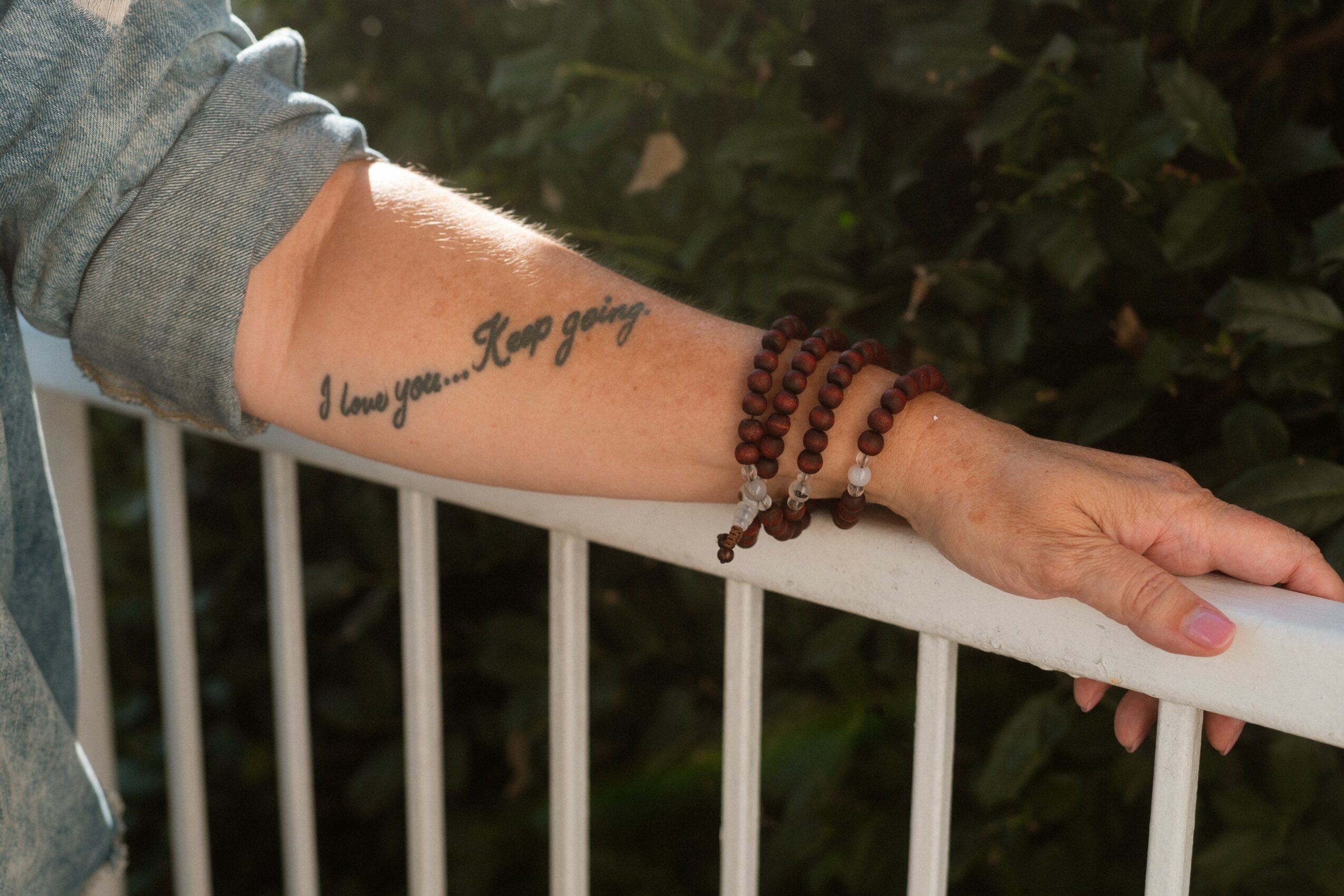
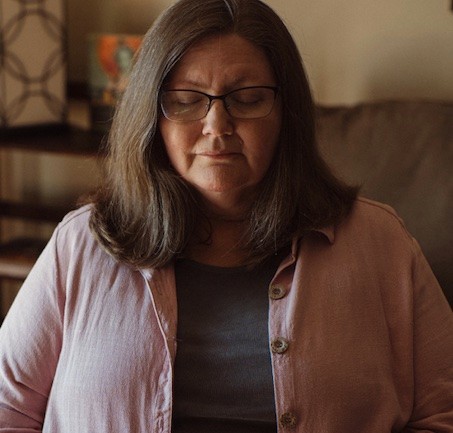
Image Credits
Lindsey Steffenhagen of ZZ Films












